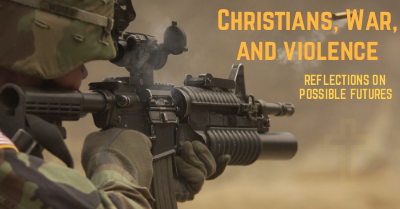|
My blog posts revolve around my interests and vocation as a historian: the intersection of history and contemporary church life, the intersection of history and contemporary politics, serendipitous discoveries in archives or on research trips, publications and research projects, upcoming conferences, and speaking engagements.
I sometimes blog for two other organizations, the Canadian Baptist Historical Society and the Centre for Post-Christendom Studies. The views expressed in these blogs represent the views of the authors, and not necessarily those of any organizations with which they are associated. |
|
For the past number of years people have heard accusations of media outlets being “Fake News,” yet few have thought about “Fake History,” something equally (if not more) dangerous. "History is written by the victors” is an adage often invoked to claim that the victors have so skewed the record that knowing what occurred in the past is a hopeless cause. It is not an entirely accurate maxim, for a great deal of history is written by the losers. It is also not true in that only the victors distort the truth; sometimes history written by the vanquished can be the problem, and a very dangerous one at that. For instance, think of postwar Weimar historians and the Dolchstosselegende or “stab in the back” that allegedly led to Germany’s defeat in the Great War. The world is still recovering from the influence of that “Fake History.” That said, the winners do get to establish the terms of peace, prosecute the war criminals, define who was a terrorist, and proclaim who won and why. In many cases, the history of conflicts becomes mere propaganda and is used to stoke flames of patriotism and justify aggression. Recognizing this subjective element to the writing of history is not necessarily slipping into postmodern despair, for, as historians such as Richard Evans have demonstrated, rigorous scholarship can usually get to the truth of the past.[1] Sadly, most people’s view of history is shaped by shallow, popular, Hollywood portrayals of the past that are mainly “Fake History,” often bordering on hagiography and/or propaganda. And it is hard for the conclusions of historians – and the pursuit of truth – to compete with the big screen. Even more so is it hard to compete with social media posts and memes. David Bentley Hart’s comments on how the popular and simple view takes precedence over diligent scholarship are apropos and thus fitting to quote at length: "Sadly, however, it is not serious historians who, for the most part, form the historical consciousness of their times; it is bad popular historians, generally speaking, and the historical hearsay they repeat or invent, and the myths they perpetuate and simplifications they promote, that tend to determine how most of us view the past. However assiduously the diligent, painstakingly precise academical drudge may labor at his or her meticulously researched and exhaustively documented tomes, nothing he or she produces will enjoy a fraction of the currency of any of the casually composed (though sometimes lavishly illustrated) squibs heaped on the front tables of chain bookstores or clinging to the middle rungs of best-seller lists....And so, naturally, among the broadly educated and the broadly uneducated alike, it is the simple picture that tends to prevail, though in varying shades and intensities of color, as with any image often and cheaply reproduced."[2] The symbiotic relationship between “Fake History” and “Fake News” is clear. There is always an historical element to a declaration of war that is seen to justify the conflict. The danger is when the war drums start beating, news media will – whether intentionally or not – pump out sound-bite history from a panel of “experts” that is simple, and often simply wrong. And if the history is wrong, maybe the war is wrong too. We need to pay attention to the media and the danger of “Fake History.” The subjectivity of the process and the issues at stake should lead to a probing of historical accounts of past conflicts, with a keen eye especially paid to claims justifying current and future violence. A Christian concern for truth and justice should compel one to heed the words of Margaret MacMillan: “always handle history with care.”[3] So what is the way forward? The next blog post in this series will provide some commentary on truth, justice, and the media in time of war. (This is blog post #3 in the series entitled “Christians, War, and Violence: Reflections on Possible Futures”.) [1] Richard Evans, Lying about Hitler: History, Holocaust, and the David Irving Trial (New York: Basic Books, 2001). [2] David Bentley Hart, Atheist Delusions: The Christian Revolution and Its Fashionable Enemies (New Haven/London: Yale University Press, 2009), 35. [3] Margaret MacMillan, The Uses and Abuses of History (Toronto: Viking, 2008), 187.
0 Comments
Leave a Reply. |
Archives
May 2024
|

 RSS Feed
RSS Feed
